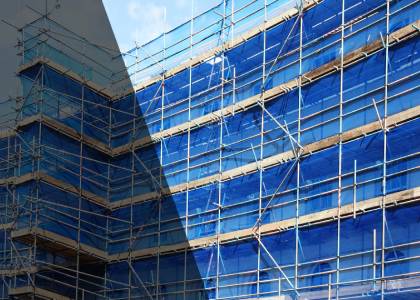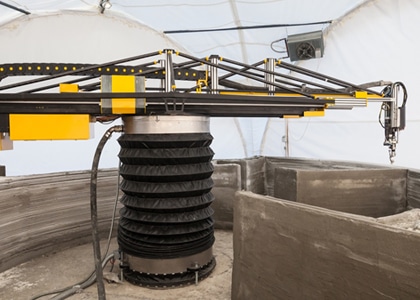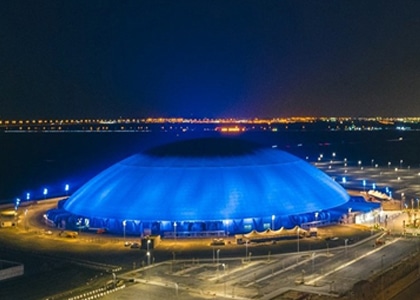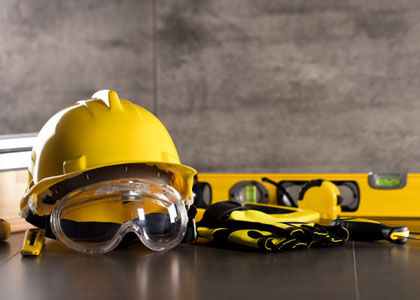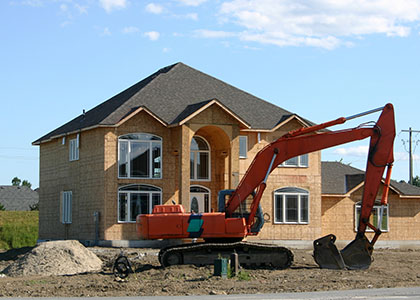Home / Blog / 5 things you need to know when choosing your formwork provider
Summary
Whether it’s better for a company to rent or purchase formwork items and systems depends on the kind of project under development and the time it will take to complete. Either way, the supplies needed must be of high quality and durability to ensure the timely, accident-free completion of the work. This means that your formwork provider should be a professional who has the requisite capacity to meet a project’s needs, as well as the technical know-how to customize options and deliver.
Therefore, it is advisable that you watch out for suppliers with a limited product range. Often they will cut prices on standard-forming jobs but will have to quit when it comes to the more challenging part where know-how is needed. By contrast, a more experienced provider with an extensive range can supply custom-made forms.
Ultimately, it pays to only buy or rent from established companies with extensive experience. Ensure that the company you select offers professional and on-time design, with the technical capabilities to provide support to your engineering teams. You should be wary of formwork companies that offer discounted rates as they tend to use counterfeit products. Moreover, they do not maintain equipment to the best standards. This fails to provide the safety and peace of mind that you need to ensure quality work on your project.
In this report, we highlight what you should look out for when choosing a formwork provider for your construction needs.
INDEX
ADDITIONAL FORMWORK RECOMMENDATIONS
5 THINGS YOU NEED TO KNOW WHEN CHOOSING YOUR FORMWORK PROVIDER
When it comes to choosing your formwork provider, you cannot afford to make your decision too quickly. There are specific things that you need to look for when purchasing or hiring formwork systems. The correct formwork can make a construction project a success, whereas using the wrong systems can literally bring down a building.
Formwork makes up about 1.2% of the total costs of a building’s structural work. But you would be incorrect in thinking the role it plays is simple and insignificant. In fact, choosing good quality from a reliable provider is one of the most important decisions you’ll make for your project.
Here are five things you need to look for when selecting a formwork provider for your next construction project.

- Safety and quality
It goes without saying that safety and quality are of the utmost importance with any type of formwork or scaffolding. That’s why you should look for a provider who is committed to the following:
- Meets certification: Devastating accidents can happen when forms are removed too soon before the building material has set. Equally, poor and under-designed formwork can bend or even break during the filling process because it does not meet certification.
Make sure your supplier and their products meet the necessary safety standards set by your country or region for construction work and products. It pays to familiarize yourself with the certificates required, and cross-check if your formwork provider has them. - Cares about quality: You must consider your provider’s product in the decision-making process.
For example, steel-framed wall formwork with standard plywood facing requires more maintenance and repair than a hot-dipped galvanized steel frame that uses specially manufactured plywood designed for longer life. - Meets maintenance standards: Before deciding on your formwork provider, you need to ensure that they thoroughly inspect and test their hire equipment to guarantee the strength and quality of each piece.
You will be surprised to find out that not many companies invest in the meticulous upkeep and maintenance of their hire equipment. - Does not use counterfeit materials: The use of counterfeit products is a major cause of accidents on project sites. That’s why it’s important to know the difference between a genuine product that can bear your required workload.
Sourcing from an inexperienced or questionable formwork provider means that you may receive a faulty product, which can have dangerous consequences. It helps to know that the Middle East is a major market for counterfeit products due to the high number of imports and exports in the region.One way you can identify counterfeit formwork products is if the discount is too good to be true. Products certified by the manufacturer will not be available at steep discounts, whereas counterfeit items, which use inferior materials, can offer a lower price point, but it comes with the potential for catastrophic consequences. - Enjoys good industry reputation: A formwork provider who has repeat business and customer recommendations will also have a market reputation for safety and quality.

- Value for money
The simple truth is that quality formwork systems do not have to be exorbitantly expensive. In designing and building formwork, you should aim for maximum economy, which you can do by focusing on the following points:
- Clever design can contribute greatly to the overall costs. Find a form provider who can offer expert engineering and technical support to projects of all shapes and sizes.
The formwork should be well-priced, with systems that are durable, reusable, and quick to erect. Well-engineered formwork will give your project enhanced productivity whilst reducing expense. - Your formwork provider should offer updated systems to help you reduce, or ideally altogether remove, the need for conventional formwork like timber and plywood.
More old-fashioned kinds of formwork have more wastage and are typically designed as single-use. Using a modern, more up-to-date system is better for your project’s bottom-line and the environment. - Be wary of huge price differentials. Expanding on the point above, as a buyer you need to be conscious of how products should be priced so that you can understand when you are getting a cost-effective solution versus a suspect, possibly counterfeit, product.
If the product is more than 20% cheaper than other systems, that should raise some red flags. More likely than not, heavily discounted products are counterfeit and could be ineffective, or possibly dangerous.

- Experience
Look for someone with proven formwork experience across a variety of sectors. The following factors will help you determine if a possible provider has the experience you need for your project.
- Market reputation: Reputations are built through repeat success, over several different kinds of projects.
Not all projects are the same, and you want a provider with a commitment to service excellence and a ‘can-do’ approach, no matter the type of project. - Low accident rate: Whilst it may not be possible to find a formwork provider with absolutely no accidents in their entire history, you should look for someone with the least number of incidents.
Ensure that the formwork they provide is strong and well-maintained and can work across all weathers – especially bear the expansion and contraction that comes from extreme heat and cold. - Local industry familiarity: Sourcing someone who has worked in the local market means that they are familiar with the nuances of climate constraints, logistics support, as well as local workforce idiosyncrasies. It also gives them the added advantage of responding quickly and with flexibility.
- Credit history: It’s an industry fact that the formwork and scaffolding sector continues to grapple with payment challenges, especially with the pandemic disrupting all industries.
As a customer looking to hire modular support, it is better to use caution and choose a company with a reliable credit history. A formwork provider who is caught between payment cycles will be strapped for cash and may fall behind on material upkeep.

- Ease of assembly
Formwork systems should be quick and easy to erect and dismantle and have the following attributes:
- Scalability: Finding a local formwork provider means that, in addition to being able to respond quickly to your need to scale scaffolding or modular formwork up or down, they can also quickly recycle panels, beams, and features.
Sourcing from a smart provider who has provisions means that vertical formwork products with fewer components than traditional econo-form panels have the added advantage of saving you time and effort on shutter assembly. - Customizable solutions: A formwork company needs to be able to identify each project’s needs and develop an appropriate solution. You should choose a provider who can customize existing modular structures to suit your specific requirements. Some projects may require a self-climbing system, for example, and your formwork supplier needs to be able to provide such solutions.

- Capacity and deliverables
Make sure your formwork supplier has sufficient product and capacity by examining these elements.
- Resources: It is imperative that your formwork provider has adequate manpower (including labor if required) and the technical expertise to do the job well.
To determine the most efficient solution for a project, a contractor will evaluate several options to optimize resource utilization. Among the other considerations, the choice of formwork and how it is applied is of prime importance. - Network: It also helps if a formwork company has multiple branches across cities, especially near your project sites. This gives you added coverage to ensure the timely supply and wide distribution of products and services.
- Consumables: If your formwork provider sells a range of handy formwork consumables, like tie cases, slab and wall separators, steel wool, and molding agents, among others, it is an added advantage as they can function as a one-stop-shop for your formwork needs and advice.
- Timeliness: During the construction process, the concrete formwork has a very central role to play in the construction timelines of the project. A provider who keeps to schedule will be an asset.
ADDITIONAL FORMWORK RECOMMENDATIONS
It goes without saying that you need to source the right kind of materials for specific construction requirements. A professional formwork provider knows these requirements.
Although many formworks have certain commonalities that can be used in most construction situations, in modern times, the design specificity and related mechanical requirements are more demanding on the bearing capacity of concrete buildings, and their shapes. Therefore, you must be careful to choose an informed provider who has the latest equipment at their disposal.
To guide buyers through the challenge of sourcing technical formwork, we list some products here to help you familiarize yourself with available options.
You may consider asking your provider for more details when it comes to supporting your construction needs.
- Dokaflex: The Dokaflex is a hand-operated floor formwork system, which consists of only a few components, making it easy and fast to set up.
The props’ high load-bearing capacity is complemented by numbered holes for easier height adjustment. With special thread geometry, it is easier to release, even when under a high load. This reduces the user’s handling time. - Framax Xlife: Framax Xlife has been developed to meet the increasing demand for faster and more cost-effective forming by including long-life plywood.
Due to the plastic coating on the Xlife sheet, the pre-designed panels offer durability and a high number of re-use cycles. Applicable to different wall heights and cross-sections of columns, the panels can be erected quickly and re-used for new applications. - Peri GT24: The Peri GT24 is a girder, which is used for slab and wall formwork solutions. The product can be used in systems such as Peri’s Multiflex, a slab formwork system used for any slab thickness, floor plan, and height, and Vario GT24, a girder wall formwork system with adjustable element connections.
- ACS climbing bracket: The ACS is a bracket, which climbs smoothly and evenly on climbing rails using hydraulic pumps. It has a lifting power of 100 kilonewtons and raises the unit to the next pour without the need for an intermediate anchor.
- Mammut 350: This wall formwork system has been on the market since 1982. It incorporates an all-plastic facing, which lasts as long as the frame, never needs to be replaced, and survives an unlimited number of re-uses.
The Mammut 350 is ideal for civil engineering projects, as well as for industrial and engineering construction. The system can take 100 kilonewtons per meter square of concrete. - MEP shoring system: The MEP shoring system can support slab formwork at all heights, from underground carparks to high structures, and is integrated with a safety latch and two prop options for normal and heavy-duty loads in one system.
- H20 Wall and Column Formwork: With this system, wall and column elements are pre-assembled on-site and are used for all types of shear, core, and single-sided walls.
- GFT 20 Support Tower: This system incorporates galvanized steel frames. It is mainly used for high and heavy slabs, beams, and bridges.
- Ulma CC-4: CC-4 is a modular aluminum drop-head panel system used for large areas of flat deck slabs. It is a portable and light slab system that requires no crane. Early striking can be achieved with this product.
Its main elements are made of aluminum, and it can be erected quickly as its stand-alone grid structure allows one team to set up the grid, whilst another team puts the panels in place. - Ulma LGR: Launched in January 2008, the LGR system is an engineer-profiled steel lightweight panel system specially designed for columns and extensively used in villa projects.
LGR allows for an easy and fast erection because it is portable, and its accessories are fixed to the panel so there are no lost parts. Its formwork surface includes long-lasting plastic (no plywood) and it can withstand pouring pressures of up to 80 kilonewtons per meter square. - Ischebeck Titan: The Ischebeck Titan’s range of legs and props offers fast, effective support for formwork during in-situ and precast casting operations as well as for back-propping of recently cast slabs. Buyers can choose from Titan aluminum legs, push-pull props, steel props, and aluminum props.
- Ischebeck Noetop: Ischebeck Neotop is a large, high-strength formwork system used for efficient casting of walls in a wide variety of situations. The system sustains concrete pressures up to 88 kilonewtons.
For more information on modular formwork and scaffolding, what would work best for your project, and how you can get the support you need to ensure your construction is safe and efficient, contact the experts at SSF by clicking here.

